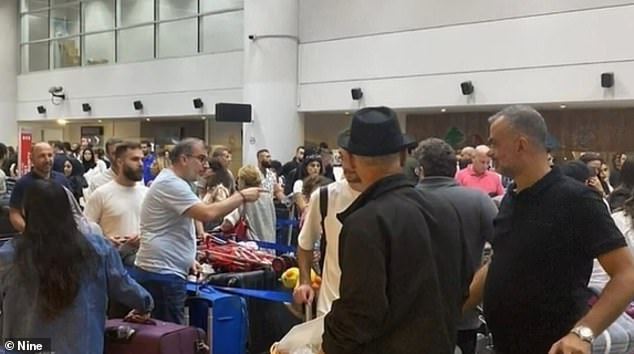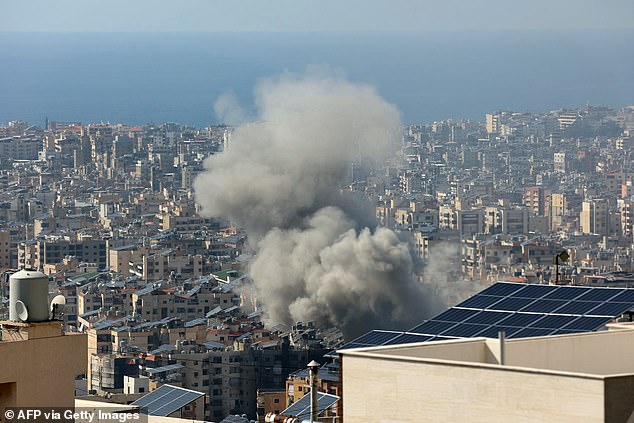Aussie teacher stranded in Lebanon as Middle East conflict escalates
An Australian woman stuck in Lebanon looking for a way to escape the war-torn country says she feels like she is “waiting to die” as the conflict in the Middle East worsens.
Teacher Josiane Vekas, 49, traveled from Adelaide to Lebanon six weeks ago to visit family but is now holed up on the outskirts of the country’s capital Beirut as Israel carries out devastating airstrikes against the Hezbollah militia and forces across the southern border rolling.
Despite desperate attempts to flee by plane and boat, Ms Vekas says she is thwarted at every turn.
Her husband Ferenc, back home in Australia, claims the federal government has offered no assistance in helping his wife escape, despite officials securing seats on flights for stranded Australians.
Ms Vekas described it as terrifying to be stuck in a war zone.
“We hear the planes flying through the sky and sometimes they are very low and the sound is scary,” she said Nine news.
“And at night, when they bomb or attack, we hear the explosions.”
“If they attack this area, we’re done.”
Australian Josiane Vekas (pictured left with husband Ferenc Vekas) is currently stranded in war-torn Lebanon
Ms Vekas added that the situation is getting worse every day.
“There’s nothing left, no buildings, no cars, no house… nothing… children are getting hurt,” she said.
“It’s like seeing the war in front of you and not being able to do anything.”
Ms Vekas said two flights back to Australia had been cancelled.
She also faces increasing difficulties in reaching the airport.
“Even the taxi is afraid to take me to the airport… no one will take me to the airport… but even if I go to the airport, there are no flights,” she said
‘You sit at home and wait. When is it our turn? It’s so frustrating. Just sit and wait to die.”

Ms Vekas has had two flights canceled and is now struggling to even find a taxi driver willing to go to the airport (pictured)
Ms Vekas even tried to take a boat from Beirut to Cyprus, which also entailed risks.
“The captain told me that if there are waves and big waves… it’s for the safety of everyone… we’re not doing this trip, so it’s going to be canceled,” she said.
Her husband Ferenc said the federal government had not helped her.
“I haven’t really heard much from the Australian government other than what you read in the news,” he said.
“There’s been no real communication with them, so I thought that was disappointing.”
Mr. Vekas has not yet given up hope of returning home safely.
‘We have hope. We hope they finish this soon, please,” she said.
More than 1,700 Aussies registered with the Department of Foreign Affairs and Trade have been asked to leave. Lebanon has asked to leave.
The federal government has secured 500 seats for Australian citizens on two flights leaving Lebanon on Saturday. Both flights have a stopover in Cyprus.
“What I would say to Australians who want to leave is please take the option that is available to you,” Australian Foreign Minister Penny Wong said.
‘Please do not wait for your preferred route.’
The federal government also reportedly won 80 seats on flights leaving Lebanon on Thursday, but only 35 Australian citizens took up the offer.

Israel’s intensive bombing campaign in Lebanon has led to the displacement of 1.2 million people, according to the Lebanese government.
The burgeoning conflict between Israel and Hezbollah in Lebanon has resulted in massive civilian casualties and the displacement of approximately 1.2 million people, according to the Lebanese government.
Two people were killed and 11 injured in an Israeli attack in Beirut last night, the Lebanese Health Ministry said.
The healthcare system is now “struggling to cope”, with hospitals overwhelmed by the influx of people caught up in the Israeli bombing of the capital and the south, where Hezbollah says it maintains strongholds.
